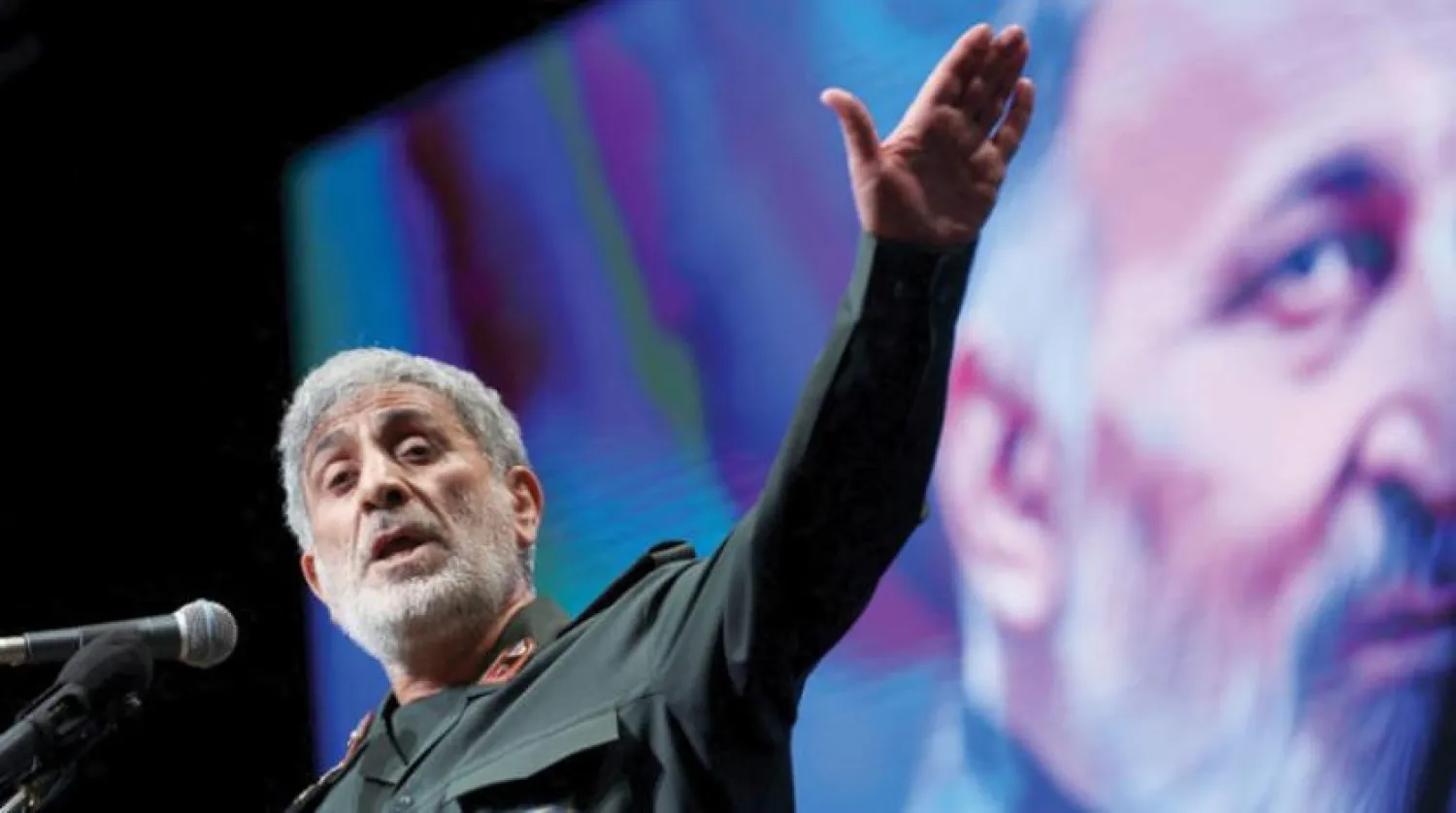After a notable absence from the media, head of the Iranian Revolutionary Guards' Quds Force, Esmail Qaani threatened on Thursday to destroy Israel, while defending Tehran's firing of ballistic missiles on Erbil.
Iran will harshly confront Israel "wherever it feels necessary", Qaani said, according to the semi-official Nour News agency.
In March, Tehran targeted what it called "secret Israeli bases" during a missile attack on Iraq's northern Kurdish regional capital of Erbil. The assault was meant to avenge Israeli air strikes that killed Iranian military personnel in Syria.
"Wherever we identify a Zionist threat, we will harshly confront them, they are too small to confront us," said Qaani, whose unit is in control of the Revolutionary Guards' foreign operations.
Qaani was speaking on the first anniversary of the death of his first deputy, whose death - in mysterious circumstances - was announced a year ago.
The Guards said he died from wounds sustained during a chemical weapons attack dating back to the Iranian-Iraqi war. Circles close to the Guards have implied otherwise.
Qaani also implicitly boasted of his forces' operations in Lebanon, Yemen and Iraq. He expressed his support for the recent series of attacks in Israel that have claimed the lives of 14 Israelis in a few weeks.
According to Reuters, he pledged to support any group that fights the "Zionist regime" and added that "the destruction of this regime is gaining ground."
He described the regime as police state that monitors everyone's every move.
"We will not remain idle and we will take the initiative when the time comes," he vowed.
He also alleged that Israeli agents were active in Erbil.
"Very few were aware that a Mossad base was active in Erbil. The Islamic regime did and it is watching its enemy well and understands how to handle it," he claimed.
The attack on Erbil was discussed between Iraqi Foreign Minister Fuad Hussein and Iranian officials in Tehran over the past two days.
On Thursday, he held talks with Iranian President Ebrahim Raisi.
He stressed to him that Iraq will not be a platform to launch attacks against Iran's security or any other country.
He added that Baghdad was prepared for broader cooperation to prevent any threats to Iran's interests, reported Iraq's state news agency (INA).
For his part, Raisi said: "Tehran expects neighboring countries, especially Iraq, to bar foreign presence that targets Iran." This includes in regions controlled by the federal government and those controlled by Erbil.
"We expect neighboring countries to be aware of the conspiracies of enemies," he stressed.
Raisi claimed the Kurdistan Region was "negligent" in addressing these affairs, stressing that Tehran was "closely monitoring the activity of the Zionist enemy."
"We will not allow them to undermine the security of the region through any country, including Iraq," he added.
On Wednesday, the Iraqi FM met his Iranian counterpart Hossein Amir-Abdollahian and called for resolving security issues between their countries through dialogue.
Tensions have deepened at a time when Iran and world powers were engaged in talks on reviving the 2015 nuclear deal, which Israel opposes.
While not a party to the nuclear negotiations between Iran and world powers in Vienna, Israel has conferred with the US administration in hope of wielding more clout over any revival of a deal with Tehran that was reached over its objections.
Iran has demanded that Washington drop the terrorist designation of the Guards. The US has demanded that the Guards rein in their activities in the region. Tehran has refused.
A report revealed that one of the main conditions for delisting the Guards is Iran's abandonment of any future plans to avenge the killing of Qaani's predecessor, Qassem Soleimani.
The killing of all American leaders would not be enough to avenge the US killing of Soleimani, a senior Iranian Guards commander said on Wednesday.
"We should avenge him by following Soleimani's path and through other methods," said Mohammad Pakpour.
Commenting on the remarks, US State Department spokesperson Ned Price said on Wednesday: "We have consistently made clear that we will protect and defend our citizens. This includes those serving the United States now, those who have formerly served the United States in the past."
"What is true is that this is an issue – Iran policy – on which there are many disagreements. But we are united in our resolve against threats and provocations, and we will work with partners and allies around the world and in the region to deter and to respond to any attacks that may be carried out by Iran," he told a press briefing.









